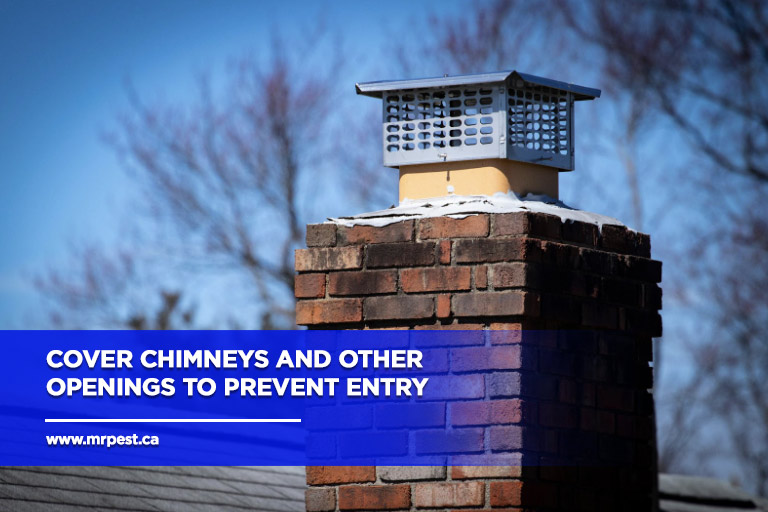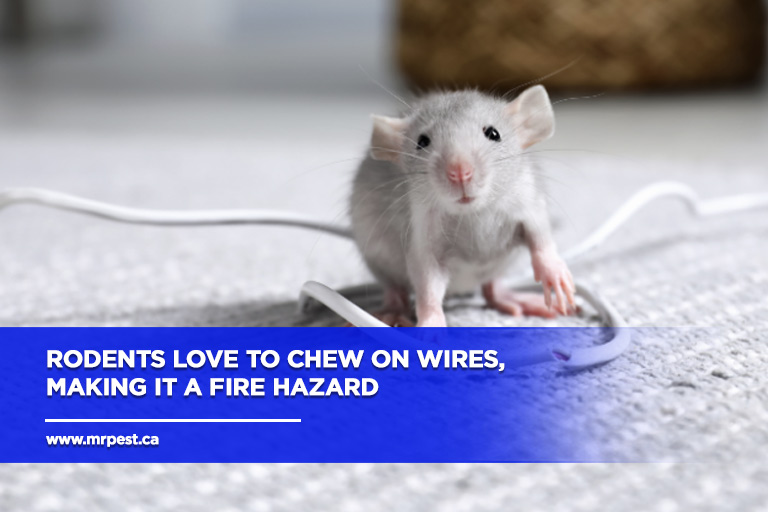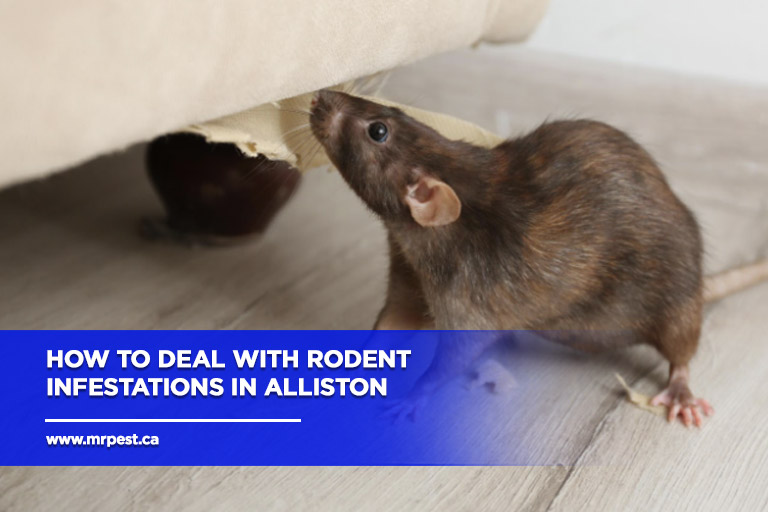Rodent infestations in Alliston can be a real nuisance, posing health risks and damaging property. In this blog, we’ll share practical tips to help you spot, prevent, and tackle rodent problems effectively, so you can keep your home or business safe and pest-free.
Understanding Rodent Behaviour
Rodents are cunning little creatures that can cause big problems if they invade your space. In Alliston, the most common culprits are rats and mice, each with unique behaviours and habits that help them survive and thrive.
Why Rodents Invade
Rodents enter homes and businesses primarily in search of food, water, and shelter. They are excellent at finding even the smallest cracks to squeeze through. Once inside, they can quickly multiply, turning a minor issue into a significant infestation.
Common Signs of Infestation
To effectively deal with a rodent problem, you need to recognize the signs of their presence:
- Droppings: Small and dark pellets that are often found in cupboards, pantries, or along baseboards.
- Gnaw Marks: Rodents chew on wood, plastic, and even electrical wires, leaving behind visible damage.
- Noises: Scratching or scurrying sounds (especially at night) can indicate the presence of rodents in walls or ceilings.
- Nests: Rodents build nests from shredded paper, fabric, and other soft materials. These are usually hidden in dark and secluded areas.
Habits and Behaviour
Understanding rodent behaviour can help you spot an infestation early. Mice are curious and tend to explore new environments quickly, while rats are more cautious and stick to familiar paths. Both species are nocturnal, meaning they’re most active at night.
Prevention Strategies

Cover chimneys and other openings to prevent entry
Preventing rodents from entering your home or business in Alliston is the best way to avoid the hassle and health risks they bring. Here are some practical tips to keep these pesky invaders at bay:
- Seal Entry Points
Inspect your property for any gaps, cracks, or holes, especially around doors, windows, and the foundation. Use caulk, steel wool, or metal mesh to seal these entry points. Don’t forget to check for gaps around utility pipes and vents.
- Store Food Properly
Rodents are always on the lookout for food sources. Store food in airtight containers made of glass or heavy plastic. Keep pet food sealed and off the floor.
- Manage Waste Effectively
Garbage is a major attractant for rodents. Use bins with tight-fitting lids and take out the trash regularly. Keep outdoor garbage bins away from the building and ensure they are well-sealed to prevent rodents from getting inside.
- Maintain Cleanliness
A clean home is less inviting to rodents. Regularly vacuum, sweep, and mop floors to remove food particles. Pay special attention to areas behind appliances and furniture.
- Inspect Your Property Regularly
Consider having a professional home pest control service inspect your property regularly. They can identify potential entry points and areas of concern that you might overlook. A professional can also provide tailored advice and treatments to keep your property rodent-free.
- Fix Leaks and Damages
Keep your property in good repair to deter rodents. Fix leaky pipes and faucets to eliminate water sources. Address any structural damages promptly to prevent easy access for rodents.
- Trim Trees and Shrubs
Keep tree branches and shrubs trimmed away from the building to prevent rodents from using them as pathways. A clear perimeter around your home can reduce the risk of rodents gaining entry.
- Declutter Storage Areas
Rodents love cluttered spaces where they can hide and nest. Regularly declutter storage areas like basements, attics, and garages. Organize items in sealed containers and keep these areas tidy.
Health Risks Associated with Rodents
Rodents aren’t just a nuisance; they can pose significant health risks to you and your family. Understanding these risks is crucial in emphasizing the importance of dealing with infestations promptly and effectively.
Disease Transmission
Rodents are known carriers of various diseases that can be transmitted to humans. Some of the most common diseases include:
- Hantavirus: Spread through rodent urine, droppings, and saliva, hantavirus can cause severe respiratory issues.
- Leptospirosis: This bacterial infection can be contracted through direct contact with rodent urine or contaminated water and can lead to liver and kidney damage.
- Salmonella: Rodents can contaminate food and surfaces with this bacteria, leading to food poisoning and gastrointestinal problems.
Allergens
Rodent droppings, urine, and dander can trigger allergic reactions in sensitive individuals. Symptoms can range from mild respiratory issues to severe asthma attacks. Children and people with pre-existing respiratory conditions are particularly vulnerable.
Parasites
Rodents often carry parasites such as fleas, ticks, and mites. These parasites can spread to humans and pets, causing additional health issues. For instance, fleas from rodents can transmit murine typhus and other infections.
Contaminated Food and Water
Rodents can contaminate food supplies and water sources with their droppings, urine, and saliva. This contamination can lead to outbreaks of foodborne illnesses and other health problems. It’s essential to ensure that all food is stored securely and that surfaces are regularly cleaned and sanitized.
Structural Damage

Rodents love to chew on wires, making it a fire hazard
Beyond direct health risks, rodents can cause structural damage to your property, which can lead to secondary health risks. For example, gnawed wires can result in electrical fires, while damaged insulation can lead to poor indoor air quality and respiratory issues.
Psychological Impact
The presence of rodents in your home or business can also cause stress and anxiety. The fear of contamination, the damage to property, and the persistent worry about dealing with the infestation can take a toll on mental health.
DIY Rodent Control Methods
If you’ve noticed signs of a rodent infestation, taking immediate action can help prevent a small problem from becoming a big one. Here are some do-it-yourself methods to control and reduce rodent populations in your home or business:
Traps
Using traps is one of the most effective ways to control rodents without chemicals. There are several types of traps available:
- Snap Traps: These are the traditional spring-loaded traps that kill rodents quickly. Place them in areas where you have noticed rodent activity.
- Glue Traps: These traps use a sticky surface to catch rodents. They are best placed along walls and in corners where rodents travel.
- Live Traps: These humane traps capture rodents alive, allowing you to release them far from your property. Check them regularly to ensure captured rodents don’t suffer.
Baits
Baiting can be an effective method when combined with traps. Use rodent-specific bait to attract them to traps:
- Peanut Butter: A favourite among rodents and easy to use on traps.
- Cheese: Although commonly thought of, it’s less effective than peanut butter.
- Nuts and Seeds: These can also be effective, especially for mice.
Deterrents
There are various deterrents you can use to make your property less attractive to rodents:
- Ultrasonic Devices: These emit high-frequency sounds that are unpleasant for rodents, encouraging them to leave.
- Natural Repellents: Substances like peppermint oil, ammonia, and mothballs can deter rodents. Place these in areas where rodents are likely to enter.
- Electronic Repellents: Devices that use electronic pulses to keep rodents away from certain areas.
Home Remedies
Some homeowners prefer using natural and non-toxic remedies to deter rodents:
- Peppermint Oil: Rodents dislike the strong smell. Soak cotton balls in peppermint oil and place them in areas where you suspect rodent activity.
- Cayenne Pepper: Sprinkle it around entry points and areas of activity to deter rodents.
- Onions: The strong smell of onions can repel rodents, but they must be replaced regularly as they spoil quickly.
When to Call a Professional
Sometimes, DIY efforts just aren’t enough to deal with those sneaky rodents. If you’ve tried everything and still hear scurrying at night, it might be time to let the experts take over.
Professionals have the skills to find and remove all those hidden nests, ensuring your home is rodent-free. They have access to better traps, baits, and detection equipment that can get the job done more effectively than store-bought solutions.
“Canada is the only country founded on the relentless pursuit of the rodent.” – Preston Manning
Experts can thoroughly inspect your property, seal entry points, and offer tailored advice to keep rodents out for good. Letting the pros handle it means you can relax, knowing the problem is in capable hands. They even offer follow-up services to ensure the rodents are gone for good. Professionals use safe, humane methods to remove rodents, keeping your home safe for everyone, including pets.
Beyond just removing the current infestation, pros focus on preventing future problems with ongoing monitoring and maintenance. If your rodent issues are more than you can handle, calling a professional in Alliston can save you stress and ensure a rodent-free home.
Keep Your Home Rodent-Free with Expert Help
Dealing with a rodent infestation can be stressful and challenging, but you don’t have to face it alone. Whether it’s sealing entry points or conducting thorough inspections, professionals have the expertise to handle even the most persistent rodent problems.
Don’t wait until the issue worsens – take action today to protect your home and health. For reliable and effective pest control in Alliston, contact Mr Pest Control at (705) 739-7378. Let the experts help you reclaim your space and enjoy a rodent-free home.



